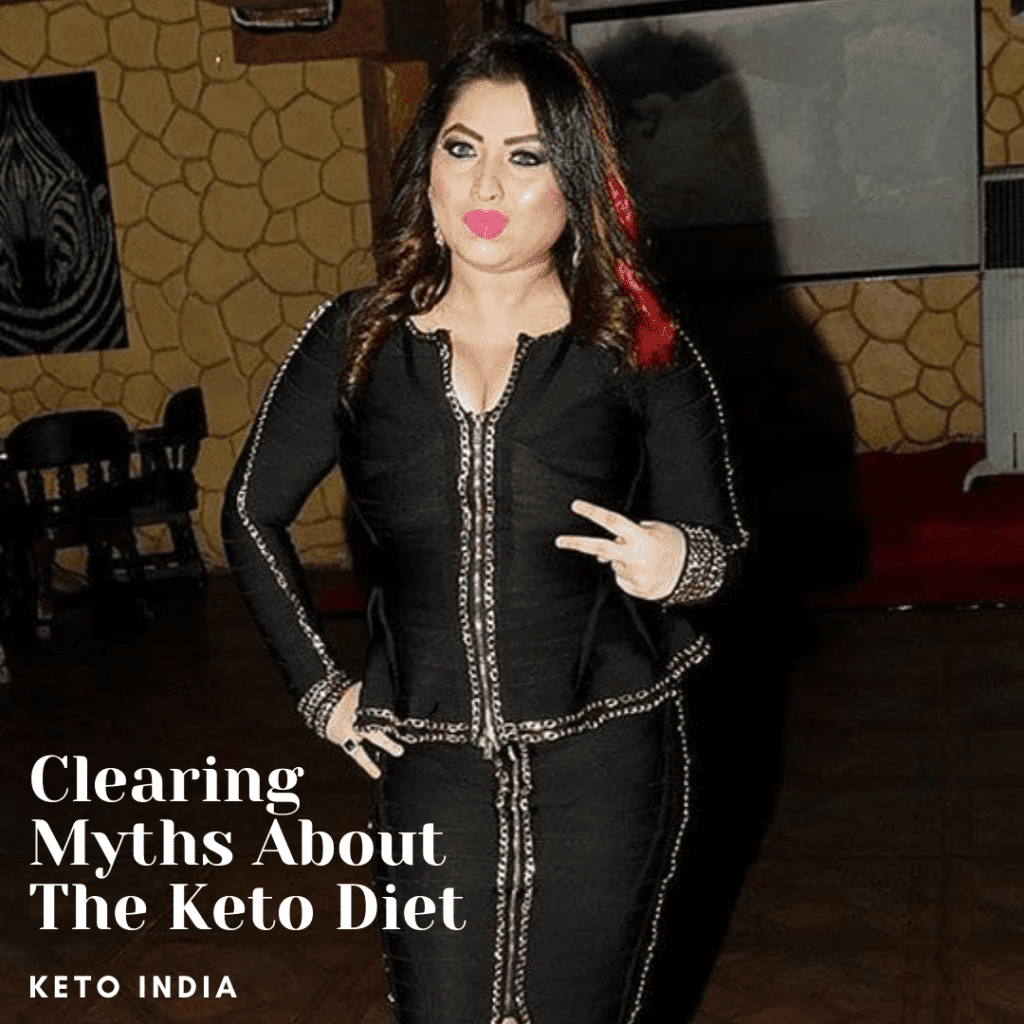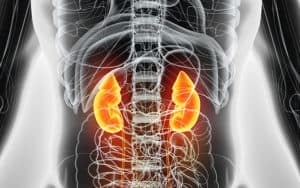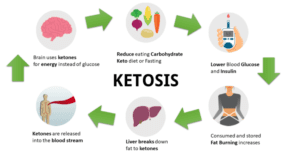Who is Mishti Mukherjee? All you need to know about the Indian actress who is believed to have died from The Keto Diet.
Mishti Mukherjee\’s Death Controversy is all over the media right now. People are speculating over what has taken place and why.
Bollywood Actress Mishti Mukherjee, who worked in many films and music videos breathed her last on Friday night (October 2) in a hospital in Bengaluru. As per the media reports, the actress was suffering from kidney disease, which resulted in her untimely death.
Indrani Chakraborty, known by her mononymous stage name Mishti, is Mishti\’s next Telugu film, Columbus, stars Sumanth Ashwin, and is produced by MS Raju. She returned to Bollywood with Indra Kumar\’s Great Grand Masti, the third film in the Masti film series.
What\’s The Media Saying About It
The Media reports and articles are constantly talking about Keto and it\’s relation to the actress\’s death. Calling Keto a High Protein diet and that being a reason for Kidney Failure and possible demise of Mishti, the articles have been aggressively focusing on bashing off the diet, instead of being sensitive towards an untimely death of a person.
The Beet mentions Keto being a \”High Protein Diet\” and it\’s adverse effects on the dieters.
Times Of India found quoting a Senior Dietician, Priya Sharma mentioning the diet being High on Protein Intake.
News 18 was found mentioning about how the Keto Diet being high in proteins puts pressure on the kidneys and can lead to failure of the same.
Now, let us give you some clarity here. The Keto Diet isn\’t a high protein diet. Shocked? If you have tried it or you know someone who has done it, you already know how the diet works. The foundation of these articles itself is a lie and a case of \”Half Knowledge\”.
The Standard version of Keto Diet is Moderate On Proteins, not high, so the basic allegations itself stand nowhere now. The protein consumption on a keto diet is 0.8 g to 1 g per kg of bodyweight of the dieter.
The ketogenic diet sources an average of 70-80% of energy from fats, 5-10% carbohydrate, and 10-20% protein.
Let\’s Talk Some Science Into You!
Most of us have heard about the Keto Diet. You may have either followed it or would have been recommended the same for weight loss or improved health. With immense popularity comes rumors and myths too, and Keto hasn\’t faced any different scenario.
For instance, people are very quick to say, \”Keto diet is not a healthy diet for a healthy individual, since it includes an extremely high percentage of fat and protein and a no amount of carbohydrates at all.\” The problem? Keto isn\’t a High Fat and High-Protein and No Carb Diet. It\’s a High-Fat, Moderate-Protein, and a Low-Carb Diet.
Now the best moral to take out from this instance would be, \”The people who don\’t even know the standard macro distribution of a diet, why should you believe their takes about that particular diet?\”
The problem lies with \”not knowing enough\” or the famous saying, \”Half Knowledge\”. We come across different people from different cities every day and we can tell you one thing for sure, that 85% of the population don\’t actually understand what the meaning of Keto Diet is.
Here\’s a video by Dr. Ken Berry, a family physician with over 20 years of clinical experience and one of the leading practitioners of the Keto Diet in the world. Dr. Berry is affiliated with Henry County Medical Center in Tennessee, US. He has an extremely popular youtube channel with over 1 Million Subscribers across the globe.
Dr. Berry is the author of the bestseller \”Lies My Doctor Told Me\” which exposes myths and misleading health advice from well-meaning doctors, such as avoiding fat. He himself embraces the Ketogenic diet and has come up with a video to detangle the Myths about Keto Diet\’s effect on Kidney Function.
Check Out the Video Here:
You need to know the difference between Healthy and Fad Diets. And for that, you need to educate yourself with real facts. This is what we will be talking about here in this article, about the alleged risk of keto diet which is \”Can Keto Lead To Kidney Failure?\”.
First, we’ll look at what our kidneys do and how they can get damaged.
What Are Kidneys And What Is Their Function?
Your kidneys are actually like a pair of bean-shaped organs on either side of your spine, below your ribs and behind your belly. Each of these kidneys is about 4 or 5 inches long, which is roughly the size of a large fist.
The kidneys act as very efficient filters for ridding the body of waste and toxic substances, and returning vitamins, amino acids, glucose, hormones, and other vital substances into the bloodstream. The kidneys receive high blood flow and this is filtered by very specialized blood vessels.
Breaking it down for you:
- Blood comes into the kidney
- Waste gets removed
- Salt, Water, and Minerals are adjusted if needed.
- The filtered blood goes back into the body.
- Waste gets turned into the urine, which collects in the kidney\’s pelvis, a funnel-shaped structure that drains down a tube called the ureter to the bladder.
Each kidney has around a million tiny filters called nephrons. You could have only 10% of your kidneys working, and you may not notice any symptoms or problems. If at any point, the blood stops flowing into a kidney, part or all of it could die and that can lead to kidney failure.
How Can Your Kidneys Get Damaged?
Many different diseases, drugs, toxins, and inherited disorders can be the cause of kidney damage or failure.
However, the two most common causes of kidney disease are diabetes and high blood pressure, both of which can severely damage the kidney’s delicate blood vessels and tissues over time. Hence you need to keep a check on your Blood Sugar Levels and Blood Pressure regularly and maintaining a healthy lifestyle can help you to manage them too.
Adding to this, consuming large quantities of salt: Diets high in sodium increase blood pressure levels. High blood pressure damages the kidneys over time and is a leading cause of kidney failure.
Kidneys can become damaged from a physical injury or because of other disorders too. And Kidney failure does not happen overnight. It is the end result of a gradual loss of kidney function.
In fact, some people do not even know they have kidney disease until their kidneys fail. Why not? Because people with early kidney disease may not have any symptoms. Symptoms usually show up late in the progression of the disease.
How To Know If You Have Kidney Issues?
Look out for these signs and symptoms, and if you face any of them, consult with your doctor immediately.
- Decreased urine output, although occasionally urine output remains normal.
- Fluid retention, causing swelling in your legs, ankles, or feet.
- Shortness of breath.
- Fatigue.
- Confusion.
- Nausea.
- Weakness.
- Irregular heartbeat.
Once you begin treatment for kidney failure, your symptoms will improve and you will begin to feel much better.
And because diabetes and high blood pressure cause more than two-thirds of all chronic kidney disease. Preventing, controlling, or reversing these two conditions with a low-carb diet may prevent the future development of kidney disease.
Researches prove that the keto diet can improve diabetes and high blood pressure, which may prevent kidney damage caused by those diseases. But is there any concern that the diet itself might have its own impact on the functioning of healthy kidneys? Let\’s talk about that!
Since dietary fats have been unfairly demonized for the past few decades, some people are worried that keto may affect your internal organs, including your Kidneys. But how true is that? Let us closely look at it.
So Is The Keto Lifestyle Bad For Your Kidneys?
More than 40% of people are diagnosed with kidney failure in the world. This condition occurs when your kidneys can no longer properly eliminate waste. Developing kidney problems are a common concern for people who are just starting a low carb diet, thanks to two common myths:
-
The Ketogenic Diet Causes Kidney Stones- The Absolute Myth
A common concern voiced about the Keto diet is the potential for kidney damage or the passing of kidney stones, due to the increased workload on kidneys from having to filter ketones, urea, and ammonia.
Further, dehydration may also cause kidney stones in predisposed individuals. Finally, the ‘high-protein’ nature of Ketogenic diets alarms some individuals who are concerned with potential kidney damage.
However, research doesn’t seem to justify this argument.
https://www.ncbi.nlm.nih.gov/pmc/articles/PMC7071259/
“a low carbohydrate diet and the corresponding high-protein diet was not harmful for renal function in overweight and obese individuals without renal dysfunction.”
Following a proper keto diet plan with electrolyte supplementation will also help ensure that you don’t come across these issues. Furthermore, it concluded that a low carb diet may even improve renal function thanks to its weight loss effects.
Overall there is little data to suggest any negative effect of Ketogenic diets on kidney function or the incidence of kidney stones. The few short term studies of adults suggest no alteration in kidney function or increased incidence of kidney stones, either while on the diet or for periods up to six months after the diet is stopped.
However, much of this is predicated on drinking sufficient water to maintain hydration, especially to limit the possibility of kidney stones. Individuals who are predisposed to kidney stones (or have preexisting kidney problems) should consider seriously whether a Ketogenic diet is appropriate for them. If they do choose to use a Ketogenic diet, kidney function should be monitored with regular blood work to ensure that no complications arise.
-
The Ketogenic Diet Causes Increased Uric Acid- The Convenient Myth
Both Ketones and uric acid compete for the same transport mechanism in the kidneys. Uric acid is a waste product of protein metabolism that is excreted through the kidneys. Under normal circumstances, uric acid is excreted as quickly as it is produced and does not allow any collection, which prevents gout.
However, due to the low carb intake combined with the increased excretion of ketones from the kidneys, uric acid levels in the bloodstream may increase.
Several studies on the Ketogenic diet have shown a consistent initial increase in uric acid levels in the blood during the initial phases of the diet. However, in most cases, the levels return to normal within the first few weeks of the diet.
This build-up can be easily avoided by maintaining the carb intake of 5% of total daily calories and drinking plenty of water. In any case, examples of severe disorders such as gout have been found to be rare.
Why You Shouldn’t Worry About Your Kidney Health on Keto
Several skeptics have confused the masses about whether or not the ketogenic diet is healthy. And we don\’t blame them, half knowledge is dangerous and they have grown to be the prey of it.
However, the truth is being in ketosis is a normal metabolic state. Our ancestors used nutritional ketosis for survival because they didn’t have access to carb-based meals three times a day as we do now. Since we have evolved to use ketones for energy, going keto is not going to harm your kidneys.
In fact, studies are now proving that ketones are the preferred energy source over glucose. The heart and brain both run 25% more efficiently when your body is using primarily ketones for energy.
And again, the research confirms that a low carb diet, even one high in protein, doesn’t harm renal function in people without kidney issues. Those with normal kidney function can handle large amounts of protein without any issue.
Even if you have diabetes which can put you at risk of kidney dysfunction keto is beneficial.
The Real Culprits Behind Chronic Kidney Disease
Now let\’s talk about people who have faced some issues and have been found blaming the keto diet for it. Since ketosis and protein are not to blame for kidney problems, here’s what actually harms your kidneys:
- Smoking
- Old age
- Family history of kidney disease
- Cardiovascular disease
- Chronically high blood sugar levels
So what that means is, if you are free from any of these prolonged kidney issues, keto would never lead you to them anyway. And for people who have these issues should be more careful. Now, this doesn\’t mean that Keto can worsen your condition, but because you can\’t have the proper knowledge of Food and Nutrition, you can fall short on your own while at it.
This simply means, following the CFTS process, which means Consult First Then Start.
Anybody who has a medical complexity especially in terms of organ issues should constantly stay in touch with their Doctors. If at all your Doctor gives you a heads-up to take up a diet, then proceed.
We have seen a lot of people doing diets recklessly without any guidance or knowledge and when that takes a toll on their health, they are pretty quick to bash the diet off.
Talk to your doctor before you start any weight loss program if you:
- Plan to lose more than 15-20 pounds
- Have any health problems
- Take medication on a regular basis
- Have a prolonged organ issue
Getting on with a diet is easy, maintaining it and managing it is very tough, and without having an expert by your side you can always commit mistakes on the diet, be it keto or any other diet.
Keto Diet In Early Kidney Diseases
The science is in: a ketogenic diet doesn’t exacerbate kidney problems, and in fact, it protects kidney health.
If you’re thinking of going keto but aren’t sure about the effect on your kidneys, research confirms a low carb, high protein diet won’t damage renal function, as long as you don’t have any pre-existing kidney conditions.
While the evidence is still preliminary, no research shows that low-carb diets worsen early-stage kidney disease. We saw that there is evidence that low-carb diets can greatly improve or reverse diabetes and high blood pressure. Therefore, a low-carb diet may control the main risk factors that lead to kidney disease.
Published research that actually demonstrates improvement in kidney function is sparse. However, in a case report, an obese man with type 2 diabetes who switched to a low-carb diet providing 80 to 90 grams of carbs per day experienced a stabilization of his kidney function, which had been steadily declining during the previous six years.
Takeaway: A well-formulated low-carb, ketogenic diet in early kidney disease is safe and may even address the underlying issues of type 2 diabetes and high blood pressure. It may preserve kidney function and prevent the progression to more serious stages of chronic kidney disease. In simple terms, by treating diabetes and high blood pressure, low-carb diets may prevent kidney damage.
Keto Diet And Late-Stage Chronic Kidney Disease
When the kidneys’ function is already severely damaged, can eating a low carb diet help?
In later stages of chronic kidney disease, the extra demand placed on the remaining functional portions of the kidneys actually results in a continued decline in kidney function. Improvement in advanced disease would be rare even if the underlying cause was improved or reversed.
The use of a low-carbohydrate diet for these advanced stages should only be contemplated under the direction of a qualified physician or a nephrologist, a specialist in kidney disease. Dietary protein in late-stage kidney disease: Restricting your protein intake is strongly recommended when your kidneys are already damaged.
Restricting protein to the range of 0.6 – 0.8 grams per kilogram of body weight per day about 40-50 grams per day or less than half of what most people typically eat can slow the progression to end-stage kidney failure, reduce protein in the urine, delay the onset of the symptoms of kidney failure, and delay the need for dialysis or transplantation.
In A Nutshell
The Keto Diet is therefore a safe dietary intervention in patients with obesity due to mild CKD. Especially when conducted under medical supervision in a real-life setting. Although you should take caution in screening, as well as inaccurately monitoring protein consumption at all times.
Apart from this Keto Diet doesn\’t have any kind of adverse effects on the Kidneys. So the dieters who are thinking to give it a try, are good to go. But under Expert Guidance from a Certified Nutritionist only. There\’s always a correct way to go about it, so take necessary advice and precautions and you\’re good to go.
Published Researches On No Relevant Relationship In Between Protein Intake And Renal Function
Research Link: https://pubmed.ncbi.nlm.nih.gov/10722779/
Excerpt: Excess protein and amino acid intake have been recognized as hazardous potential implications for kidney function, leading to progressive impairment of this organ. It has been suggested in the literature, without clear evidence, that high protein intake by athletes has no harmful consequences on renal function.
Research Link: https://academic.oup.com/jn/article/148/11/1760/5153345
Excerpt: Our analysis indicates that HP intakes do not adversely influence kidney function on GFR in healthy adults.
Research Link: https://www.ncbi.nlm.nih.gov/books/NBK224634/
Excerpt: Putting aside the potential adverse effects of protein intake on nephrolithiasis or on morbidity of acute renal failure, detailed earlier, there is no reason to restrict protein intake in healthy individuals in order to protect the kidney. Nevertheless, there is also no evidence that a more restricted protein intake has any harmful long-term effects on the kidney.
Research Link: https://care.diabetesjournals.org/content/36/8/2225
Excerpt: A low-carbohydrate diet is as safe as the Mediterranean or low-fat diets in preserving/improving renal function among moderately obese participants with or without type 2 diabetes, with baseline serum creatinine <176 μmol/L.
FAQs
-
Mishti Mukerjee Death By Keto
After the unfortunate demise of the Bengali actress, Mishti, the media has been throwing immense limelight on Keto, blaming it to be the reason for the incident. However, the allegations are irrelevant as the actress had been facing Advanced Renal Dysfunction for a long time now which resulted in her untimely death.
-
Keto Impacts Health
Keto Diet has been in existence since the 1920s and people have been practicing it to drop down the relevant weight and improve their overall health. Few things are as well established in nutrition science as the immense health benefits of low-carb and keto diets. Not only can these diets improve your cholesterol, blood pressure, and blood sugar, but they also reduce your appetite, boost weight loss, and lower your triglycerides.
-
Keto And Kidney Conflict
A well-formulated low-carb, ketogenic diet in early kidney disease is safe. And may even address the underlying issues of type 2 diabetes and high blood pressure. It may preserve kidney function and prevent the progression to more serious stages of chronic kidney disease. In simple terms, by treating diabetes and high blood pressure, low-carb diets may prevent kidney damage.
-
Mishti Mukerjee Keto Case
Mishti Mukherjee\’s Death Controversy is all over the media right now. People are speculating over what has taken place and why. Keto is cited to be the culprit behind it. But the allegations and foundation of people\’s take on the cause are irrelevant and baseless and there are enough researches to prove that.
-
Keto Diet Can Be Fatal
There is a fair amount of research backing the potential benefits of the keto diet. This includes weight loss and blood sugar regulation. Some studies show the benefits of following the ketogenic diet over more extended periods of up to 3 years.
-
Keto Diet Causes Kidney Failure
Apart from this Keto Diet doesn\’t have any kind of adverse effects on the Kidneys. So the dieters who are thinking to give it a try, are good to go. But under Expert Guidance from a Certified Nutritionist only. There\’s always a correct way to go about it, so take necessary advice and precautions and you\’re good to go.












